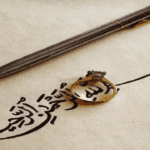In Islam, the practice of Wazu (ablution) holds immense significance. It’s a ritual cleansing process not just for the body but also for the soul. Central to this practice is the recitation of specific prayers, known as “Wazu Ki Dua,” during the ablution process.
Contents
Wazu Ki Dua

Wuzu Ke Baad Ki Dua In Arabic
أَشْهَدُ أَنْ لَا إِلَهَ إِلَّا اللَّهُ وَحْدَهُ لَا شَرِيكَ لَهُ، وَأَشْهَدُ أَنَّ مُحَمَّدًا عَبْدُهُ وَرَسُولُهُ
Wuzu Ke Baad Ki Dua In English
I bear witness that there is no god but Allah alone, with no partner, and I bear witness that Muhammad is His servant and Messenger.
Wuzu Ke Baad Ki Dua In Hindi
मैं गवाही देता हूं कि अल्लाह के अलावा कोई भगवान नहीं है, उसका कोई साथी नहीं है, और मैं गवाही देता हूं कि मुहम्मद उसका सेवक और दूत है।
Wuzu ke bad ki dua


Check Out:
Understanding the Significance of Dua
Dua, or supplication, is a fundamental aspect of Islamic faith. It’s a direct channel of communication with the Divine, a means of seeking guidance, forgiveness, and blessings. The power of Dua lies in its ability to establish a profound connection between the believer and Allah.
Meaning and Purpose of Wazu Ki Dua
Wazu Ki Dua is recited while performing ablution, signifying spiritual cleansing before prayers. Its essence lies not just in the words spoken but in the intention behind the recitation, purifying not only the body but also the heart and mind.
Step-by-Step Guide to Perform Wazu
The rituals of Wazu involve specific actions and intentions, creating a state of purity. Initiating the process with the correct intention and method is crucial, ensuring the spiritual significance of the act.
Exploring the Wazu Ki Dua
The prayer itself holds profound meaning, with translations conveying the essence of seeking purity and spiritual elevation. The recitation is not just a verbal act but a spiritual commitment.
Wazu Ke Baad Ki Dua Ki Fazilat Aur Benefits
Umar Ibn ul Khattab (may Allah be pleased with him) narrated that the Messenger of Allah (peace be upon him) said:
“Whoever performs ablution, doing it thoroughly, then says: ‘I testify that none has the right to be worshipped but Allah Alone, there are no partners for Him. And I testify that Muhammad is His servant and Messenger. O Allah! Make me among the repentant, and make me among those who purify themselves,’ for him, eight gates of Paradise are opened. He may enter through whichever of them he wishes
Conclusion
The practice of Wazu Ki Dua transcends mere ritual; it’s a spiritual journey towards purity, connection, and inner peace. Embracing this practice with sincerity enriches the soul, fostering a deeper relationship with Allah.
FAQs
What is the significance of reciting Wazu Ki Dua?
The recitation of Wazu Ki Dua during ablution holds deep spiritual significance in Islam. It symbolizes purification, not just of the body but also of the soul. It’s a moment of connection with Allah, seeking purity and blessings before engaging in prayers. The Dua helps in focusing the mind on spiritual cleansing and sets the intention for the ritual, fostering a sense of devotion and mindfulness.
Can Wazu be performed without reciting the Dua?
While the Wazu ritual can technically be performed without reciting the specific Dua, the recitation of the supplication adds a layer of spiritual significance to the process. It’s recommended in Islam to recite the Dua during ablution as it signifies the cleansing of both the outer self and the inner soul, enhancing the spiritual experience.
How does Wazu Ki Dua contribute to spiritual growth?
Wazu Ki Dua contributes significantly to spiritual growth by fostering mindfulness and devotion. Reciting the Dua during ablution serves as a reminder of one’s connection with Allah and the importance of purity in both physical and spiritual aspects. It encourages self-reflection, gratitude, and a sense of humility, all of which are vital for spiritual development.
Is there a specific time to recite the Dua during ablution?
Ideally, the Wazu Ki Dua is recited during the process of ablution itself. It starts from the beginning, as one begins the ritual of washing the hands, face, arms, and feet. The Dua is recited with the intention of purifying oneself spiritually before engaging in prayers.
Can one recite personalized prayers during Wazu?
While the specific Wazu Ki Dua holds a particular significance during ablution, Islam also encourages personal supplications (Duas) at any time. While performing Wazu, one can silently make additional personal prayers for guidance, forgiveness, or any other personal needs. However, the recitation of the prescribed Wazu Ki Dua is an integral part of the ablution process










